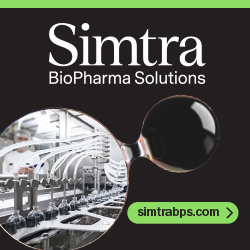Neuropathix Announces Publication of Its Global PCT Patent for a Novel Hops-Inspired Neuroprotectant
Neuropathix, Inc. recently announced the publication of its global WIPO/PCT Patent WO 2020/ 264324 – Use of Certain Phosphatidylcholines Containing Long Chain Polyunsaturated Fatty Acids (PUFAs) as Neuroprotective Agents (the PUFA Patent).
The invention underlying the PUFA Patent relates to the pharmaceutical composition comprising an amount of phosphatidylcholine (PC) containing long chain polyunsaturated fatty acids as neuroprotective agents and to compositions and methods comprising the same (NPTX-204). It has surprisingly been discovered that certain PCs containing PUFAs exhibit neuroprotective effects on neuronal tissues subjected to oxidative stress. NPTX-204 and other PCs demonstrated neuroprotective effects in maintaining neuronal viability and preventing neuronal cell death in hippocampal cultures subjected to ethanol toxicity during the company’s in vitro preclinical studies.
The invention also relates to compositions or formulations that comprise of NPTX-204 and other PCs of the PUFA Patent to treat and prevent oxidative stress in neuronal tissues, particularly neuronal tissues of the central nervous system (CNS). Additionally, the company believes that NPTX-204 and other PCs of the PUFA Patent may serve as a vehicle for adjunct, combination, or synergistic therapy of PCs of the PUFA Patent with additional active agents.
“In June 2013, during the company’s attendance at the International Cannabinoid Research Society (ICRS) annual conference in Vancouver, BC, I turned to my colleagues Doug Brenneman and Bill Kinney and said, “Hops, I believe hops is related to cannabis. And that being the case, could there be a neuroprotective agent in hops along the lines as cannabidiol (CBD) is to cannabis?” The answer to that question is yes. Through our pre-clinical pharmacology studies, we then asked native hippocampal neurons, “What protects you more from severe ethanol toxicity, CBD or NPTX-204?” These neurons told us, NPTX-204. In fact, the EC50 of NPTX-204 is over 3 million times more potent than CBD. That’s femtomolar range. That’s “pharmaceutical like” at the hormonal level. As was the case with KLS-13019, our globally patented neuroprotectant, we are bolstering our global IP estate with NPTX-204, a newly discovered compound inspired by cannabis’ brew-fermented cousin, humulus lupulus, aka, hops,” said Dean Petkanas, CEO of Neuropathix, Inc.
Neuropathix is a biopharmaceutical company focused on the research and development of a pipeline of next- generation, socially responsible pain management and neuroprotective therapeutics to treat patients with significant unmet medical needs. Over the past 10 years, Neuropathix has discovered, developed, and patented a global intellectual property estate, led by its lead clinical target, KLS-13019, as novel, new therapeutic agents designed to prevent and reverse neuropathic pain, reduce oxidative stress, and act as anti-inflammatory neuroprotectants. The company’s family of patented monotherapeutic molecules focuses on treating oxidative stress-related diseases, chronic pain management, and neurodegenerative disorders. The therapeutic targets include chemotherapy-induced peripheral neuropathy (CIPN), a chronic neuropathy caused by toxic chemotherapeutic agents; hepatic encephalopathy (HE), a neurotoxic brain-liver disorder caused by excessive concentrations of ammonia and ethanol in the brain; mild traumatic brain injury (mTBI), a disorder associated with single and repetitive impact injuries; and chronic traumatic encephalopathy (CTE), a disease associated with highly repetitive impact injuries in professional and amateur sports. Neuropathix conducts its research and development efforts at the Pennsylvania Biotechnology Center of Bucks County in Doylestown, PA. For more information, visit www.neuropathix.com.
Total Page Views: 872

















